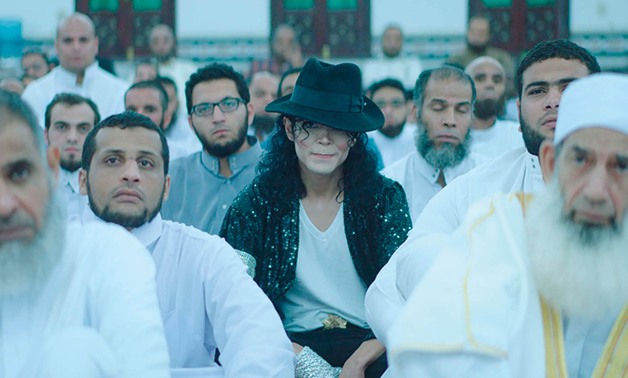
Part from Sheikh Jackson movie
Filmmakers speak a global language—a language that can be understood by audiences all over the world who are looking to hear new stories about cultures they have not experienced firsthand. With this goal in mind, US initiative Global Media Makers (GMM) celebrates its third year in Cairo, confident that “Egyptian filmmakers can bring to the US a greater understanding and a cultural bridge.
The US has a lot of preconceived notions about the Arab world that are completely wrong, and combating this comes through films, the language we all understand,” explains mentor Effie Brown, a film and TV producer who says the Egyptian films they mentored “were special for their universality and region-specifics that enable them to travel.”
Described by GMM management as “inspiring and unique,” projects by 12 Egyptian filmmakers have been mentored through the US cultural exchange program since its launch in 2016. GMM is owned by the Film Independent nonprofit organization in the US, which supports filmmakers by offering them education and workshops that help them develop their projects and techniques to build audience for the types of films they are creating.
“My first exposure to Egyptian filmmaking was through Global Media Makers, and I was struck by how similar it is to the United States in many ways, given the struggle of independent filmmakers in financing, and figuring out ways to do a movie with little industry support,” says Josh Welsh, president of Film Independent. “Some of the Egyptian filmmakers we got to see in the GMM program are very tenacious, familiar and inspiring.”
Supported by the US State Department, the GMM program has served 46 filmmakers from Egypt, Morocco, Algeria, Tunisia, Lebanon, Turkey, Jordan, UAE and Saudi Arabia. “We are serving in nine countries, but the competition in Egypt is quite strong because there are great filmmakers, so we end up taking many filmmakers coming from Egypt,” says Maria Raquel Bozzi, senior director of education programs for Film Independent.
Bozzi says the program is looking for new voices offering fresh perspectives. “There have to be stories that we haven’t heard about before, also filmmakers should tell me something about the environment they live in that we have not heard about, and the project has to be in good shape so that it can be shared with mentors.”
To date, seven GMM projects have been produced, including Amr Salama’s Sheikh Jackson, which was Egypt’s official submission for the Oscar for Best Foreign Language Film.
“It is more important for us to hear different voices,” agrees Laura Kim, one of the mentors who worked on the Sheikh Jackson project. “It’s really imperative for us to communicate more through arts in a language that we all can understand.”
At the time Bozzi found that the struggle and tension were the main elements that drew the company to Sheikh Jackson, and described it as a successful experience.
“Someone having to navigate all of these elements creates great drama, the featuring of Michael Jackson was even better; however, it was not the element that made the film successful, but rather the tension featured in the film,” she recalls.
Over the years US filmmakers working with GMM have found common drama lines in Egyptian films, among them the “sense oaf urgency” and the “love-hate relationship with Cairo’s beauty and chaos.” For Len Amato, the president of HBO films and who is also part of the GMM program, what makes a film successful and gain international reach are the storytelling and the execution. “Breaking rules helps penetrate the global market.”

Comments
Leave a Comment